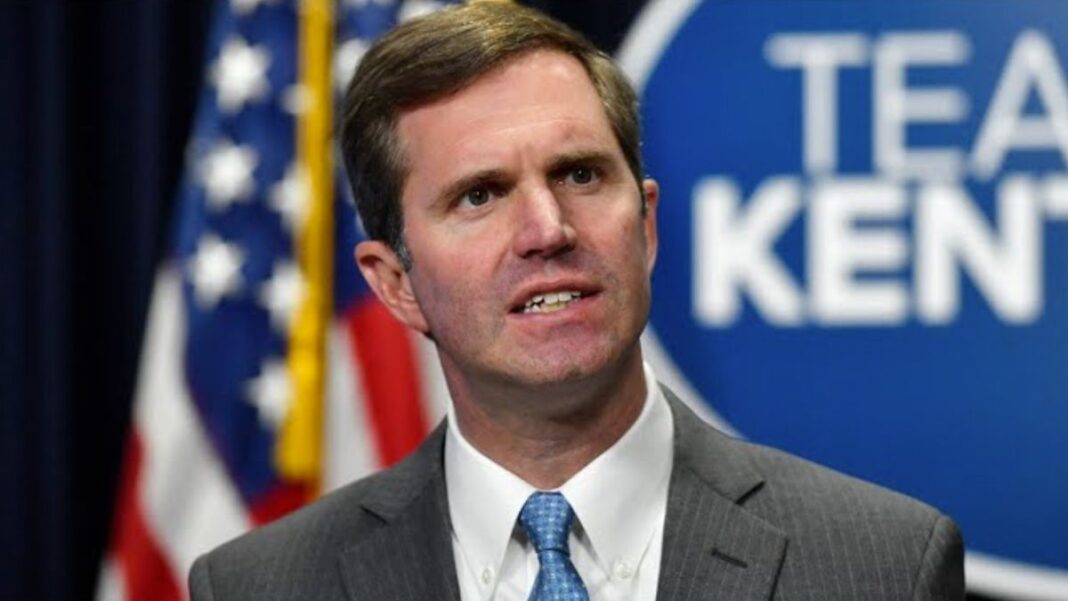Kentucky Gov. Andy Beshear on Friday vetoed a bill that the state GOP said would have “protected our children by preventing minors from accessing life-altering sex change surgery and drugs.”
The Republican-backed measure “allows too much government interference in personal health care issues and rips away the freedom of parents to make medical decisions for their children,” the Democratic governor said in a veto letter.
Beshear noted that Senate Bill 150 also “strips freedom” from parents to make “personal family decisions” around what names their children should be called “and how people should refer to them.”
“SB 150 also turns educators and administrators into investigators that must listen in on student conversations and then knock on doors to confront and question parents and families about how students behave and/or refer to themselves or others,” Beshear wrote (pdf).
The Democratic governor went on to cite his “faith” as another reason he vetoed the bill, saying it “teaches me that all children are children of God” and the proposed law would “endanger the children of Kentucky.”
Beshear cited suicide rates amongst LGBT youth in expressing his concern for the state’s minors suffering from gender dysphoria.
“For these reasons, I am vetoing Senate Bill 150,” Beshear wrote.
According to regretful “destransitioners,” i.e. people who sought to reverse their gender reassignment treatments, suicide rates are a common argument proffered by health care providers and transgender advocates to parents whose children fit certain characteristics that suggest gender dysphoria.
The vetoed bill sailed through the Republican-controlled state legislature and is expected to return and potentially be overridden.
The Bill
The bill sought to make children wait until they’re 18 to undergo life-altering treatments, such as puberty blockers, hormone therapies, surgeries that slice off healthy body parts, and inpatient and outpatient gender-affirming hospital services.
The measure would also ban sex-based discussion in schools, such as topics centered around LGBT orientation and gender identity, with students of any age. It also would have allowed teachers to refuse to use a student’s preferred pronouns.







